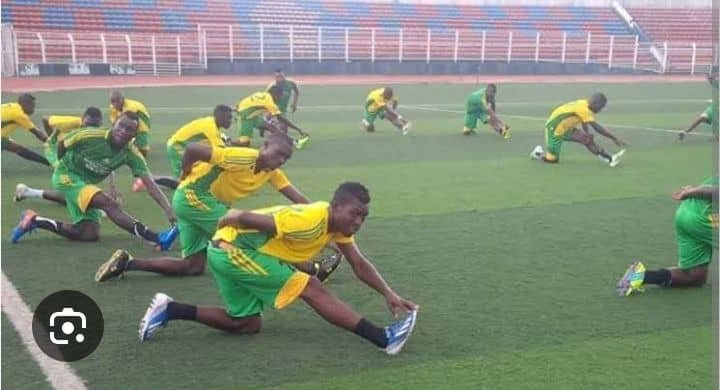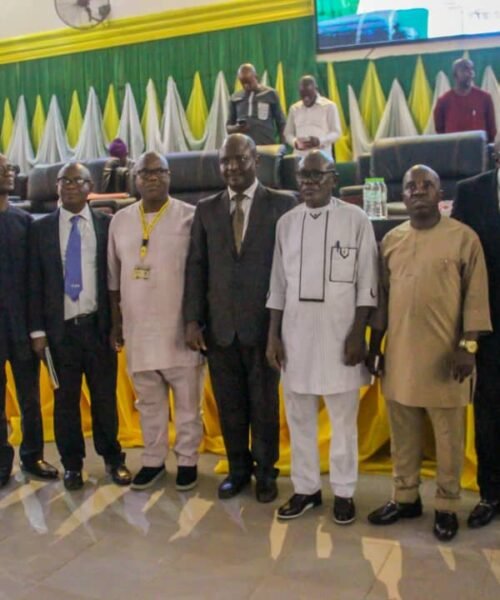“From Enyimba’s 2003 Glory to Ahudiyia Queens’ Legacy: Nigeria’s Next Super Falcons 🌟⚽ #RootsToRise”
In the heart of southeastern Nigeria, where the hum of ambition mingles with the rhythm of bouncing footballs, Abia State has quietly sculpted itself into a powerhouse of sporting dreams. Here, dusty village fields and sunbaked stadiums have birthed legends, shattered barriers, and forged a legacy that transcends trophies—it’s a story of grit, glory, and the unyielding belief that greatness grows from the ground up.

Enyimba FC: Where Continental History Was Written
When Enyimba International FC hoisted the CAF Champions League trophy in October 2003, they didn’t just make history—they rewrote Nigeria’s football identity. By December 2004, the “People’s Elephant” had done the unthinkable, defending their title and injecting ₦600 million into a region hungry for hope. The ripple effect was seismic: youth academies overflowed with 300% more registrations, and eight players from that golden squad—including iconic goalkeeper Vincent Enyeama—would later anchor the Super Eagles, their careers a testament to Abia’s knack for polishing rough diamonds into national treasures.
Ahudiyia Queens: The Rebel Roses of Nigerian Football
Long before gender equity became a global rallying cry, the Ahudiyia Queens were bending norms in Umuahia. Founded in 1992, these pioneers packed stands with 5,000 roaring fans at a time when fewer than 10% of southeastern women dared to dream of sports careers. Their legacy? Fifteen Falconets stars and a blueprint for today’s Abia Angels FC, where 60% of players still emerge from rural hamlets, their boots kicking open doors for a new generation. “We weren’t just playing football,” recalls former Queens captain Nkechi Okoro. “We were fighting for every girl’s right to roar.”
The Numbers Behind the Magic
Abia’s secret lies in its numbers. Enyimba’s youth academy—a cauldron of talent—fuels 55% of its first-team roster, with 12 graduates sold to European clubs since 2015 for over €4 million. At the National Youth Games, Abia’s children dominate: 34 medals since 2015, their fists and feet claiming gold in boxing and athletics. Even classrooms have become incubators, with school football registrations surging 72% since 2019. Yet beneath these stats pulses a raw truth: 85% of rural pitches remain crumbling relics, and just ₦120 million of Abia’s 2023 sports budget trickled down to grassroots—a paradox for a region supplying 90% of the state’s pros.
Tomorrow’s Playbook: Data, Dreams, and Digital Revolutions
The future, however, gleams with promise. Initiatives like “Girls Play Too” aim to triple female participation by 2027, while a forthcoming digital talent database will track 5,000 young athletes across Abia’s 17 LGAs. Enyimba, meanwhile, eyes a 2025 CAF Champions League return, banking on homegrown striker Chijioke Mbaoma, whose 22 goals last season echoed the hunger of 2003. “We’re not just rebuilding a team,” says coach Finidi George. “We’re reigniting a belief that every child here can become a champion.”
RootsToRise: The Soul of Nigerian Football Lives Here**
From Ahudiyia’s defiant kicks to Enyimba’s continental crescendos, Abia’s soil has always been fertile. Today, one in three Nigerian Premier Football League players trace their roots to this unassuming state—proof that talent, when nurtured, becomes destiny. As the sun sets over Umuahia’s rusted goalposts and Aba’s buzzing academies, one truth echoes: in Abia, football isn’t just a game. It’s a revolution, one grassroots hero at a time. ⚽✨
Dr Chukwuemeka Ifegwu Eke writes from the University of Abuja Nigeria







